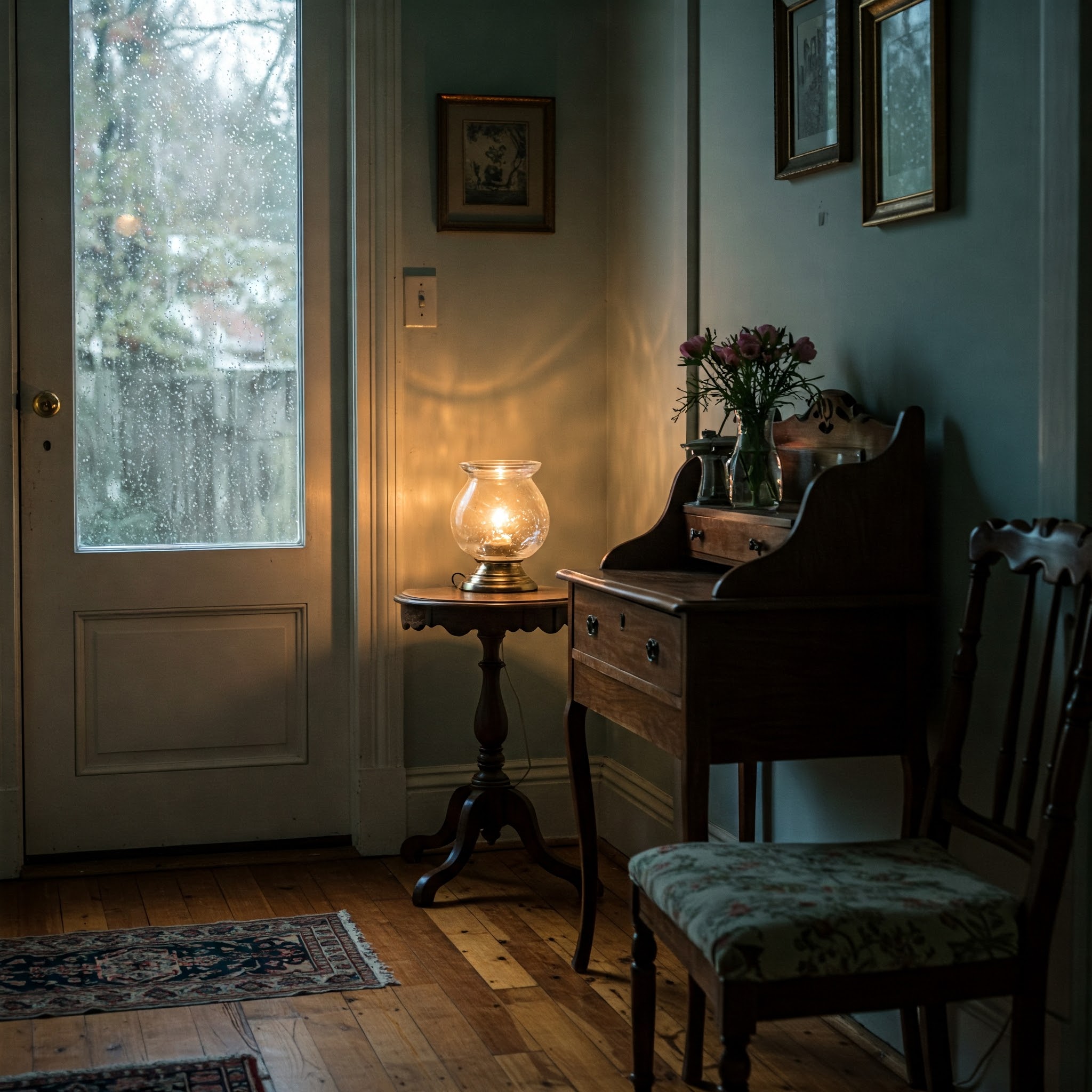Quiet Mornings, Deep Conversations
Some of my favorite moments with my husband happen in the stillness of the morning. Just the two of us, sipping coffee on the porch. We have deep, thoughtful conversations that leave me feeling more grounded and grateful for our marriage.
When Social Media Meets Real Life
This morning, we were talking about how the social media world impacts relationships. It’s a topic full of nuance, but so much of it boils down to one thing… discernment. That’s why I want to share some boundaries in marriage and social media that we have and that work for us.
Both my husband and I come from faith-filled, Christian backgrounds. My grandmother used to say, “One day, good will be called evil, and evil will be called good. Everything will be upside down and inside out.” At the time, I didn’t fully grasp how true that would become.
Take something as simple as a phone, laptop, or any device. These days, it’s common for people to expect their phone is private or their personal space. You’ll notice this mindset in people who haven’t yet developed emotional maturity or who view relationships casually. But when you see marriage as a covenant, there’s a deeper level of accountability and reverence. In a unified marriage, transparency shouldn’t feel forced or awkward, it should be natural. Marriage is, after all, the act of becoming one.
Discernment in a Hyperconnected World
Let’s be real, social media IS powerful. It can be a used for good, family, creativity, and appropriate connection. Or it can quietly open the doors that should stay closed.
This article in Psychology Today explores how interactions online can become compulsive and even lead to emotional affairs. My husband and I understand this, not in theory, but through experience in previous relationships. It often starts small: a friend request from an old flame. You accept, catch up, reminisce… and before you know it, something that should’ve stayed in the past starts to rekindle. We’ve made a conscious decision to do things differently. No secrecy, no gray areas, and no false sense of “privacy” that creates division.
When you have eyes to see and ears to hear, you begin to recognize how the enemy works, not always in bold or obvious ways, but through whispers and small compromises. When you have discernment, you will find yourself questioning online behaviors that affect you (maybe it’s a friend request, or a message, or maybe it’s suggested content). You’ll question the intent behind the behavior… more often than not, if you’re paying attention, the answers don’t sit right.
Speaking of Suggested Content
When my husband and I decided two years ago that we were going to stop drinking (I was never a “drinker” but would drink now and again, socially), I started getting suggested content like articles like: “You can moderate drinking without quitting completely” or “Why it’s okay to have a drink once in a while” I thought… if I were a vulnerable alcoholic, this could be detrimental to recovery… and it made me wonder how much suggested content out there is harmful? We need to be vigilant and diligent about our online experience. We need to actively shape what we see. We have to make sure we are not being swayed by content. You are in control of your experience. Seeing too much negativity? Change it. Block it, snooze it, etc. Make sure you are having a positive experience and that you control it, not the other way around. Food for thought.
Boundaries In Relationships and Social Media That We Practice
- Avoid opposite-sex friendships, especially with old flames. There’s no healthy reason to entertain those.
- Share passwords.
- No deleting messages. If it’s something you’d hide, it shouldn’t be said in the first place.
- Don’t like or follow provocative accounts
- Talk openly about triggers or uncomfortable interactions. Shame and fear have no place in open communication.
- Create a no-flirt zone. Respect for each other comes first.
- Don’t involve outsiders in disagreements.
These are simple but powerful ways we protect the peace in our marriage. Holding each other accountable is one of the reasons our marriage is safe, grounded, and peaceful.
The Beauty of Mutual Commitment
When my husband and I started our journey together, we were struck by how peaceful love can be when both people are fully committed. No games, no manipulation, no power struggle. We’re two givers who found each other, and we realized immediately how truly rare that is.
I had recently been in a relationship that was emotionally exhausting and deeply disorienting. It opened my eyes to a level of deception and manipulation so calculated, it made me question my instincts and at times, my worth. I uncovered things I never thought I’d be faced with… secret conversations with women, some of whom were married, and interactions that crossed the line. The betrayal was constant, the lies habitual. Joe went through something similar just before our relationship. I wouldn’t wish that feeling on anyone, but going through that shaped us into the people we are today and sharpened our discernment. We’ve brought clarity to one another, and we’ve healed together. We no longer confuse dysfunction with intensity or chaos with passion.
The Shift in Perspective
Back to the point… Things really are different now. Back in the landline days, if someone called, everyone in the house knew who it was. Now, if your spouse asks who text you, it’s suddenly considered an invasion of privacy? That’s a pretty clear example of “upside down and inside out” in my book.
And you don’t need to be religious to recognize the shift. What used to be common sense in relationships is now labeled “controlling.” Meanwhile, genuinely harmful behaviors are normalized and brushed off.
E.g.:
Here’s a non-social media example that stuck with me. Last year, I watched Secret Lives of Mormon Wives (don’t judge, it’s entertaining). In one episode, a few of the wives planned a surprise visit to a male strip club during a girls’ weekend, after their husbands clearly expressed discomfort with the idea.
These were Mormon women, with Mormon husbands, and they were supposed to be upholding shared values. When the husbands understandably got upset, some of the wives called them “controlling.” But let’s be honest: these were men who simply didn’t want their wives lusting after strippers in an unfamiliar city with unpredictable circumstances. That’s not control, it’s an expectation in marriage. You should honor and respect one another. Having a singles mindset in a marriage is incredibly immature.
BTW, the cliffhanger at the end of season one DOES have me wanting to watch the new season coming out in May. Joe says that because of the cliffhanger, the husbands now need their own show: “Secret Hoes of Mormon Bros.” I think it could be a thing. Dakota and Conner already have “Stories”.
Don’t get me started on Whitney Leavitt baking a urinary pregnancy test into a cake for her family. That was beyond disturbing. I digress.
What Are We Really Seeking?
People scroll past suggestive content all day long, double-tapping without a second thought. But how often do we pause and ask, “Would I want to be with a spouse posting that kind of content?” Probably not. Most people crave loyalty, intention, and self-respect. But in the moment, they default to instant gratification and convenience.
My husband and I value loyalty and honor our marriage. For instance ,if a man comes to the door and my husband is not home, I do not let that man come inside the home. Not because I don’t trust the man… Not because I think something will happen, but because I honor my marriage and respect my husband.
I have lived on both sides, made mistakes, ignored red flags and chosen the wrong people. The pain from that side of life taught me something valuable: I never want to be there again. Having a spouse who shares your values, and is in the same place in life, has been a blessing we don’t take for granted.
Just Something to Think About
Whether you’re grounded in faith or just looking for practical relationship advice, I hope these thoughts give you something to reflect on. I wish I had someone talking some sense into me in previous relationships where I was accepting things that are so clearly unacceptable when you are equally yoked.
I’m not saying you should adopt our lifestyle. I’m just asking you to take a moment and ask:
- Is my online behavior aligned with my values?
- Are my habits guarding or threatening my relationship?
- Am I letting negative behaviors become normalized?
Maybe, just maybe… there’s a better way.



